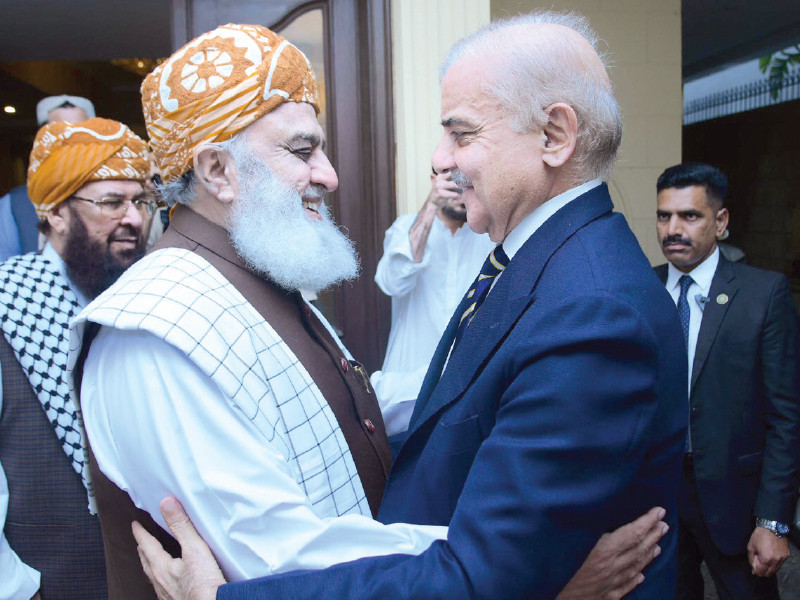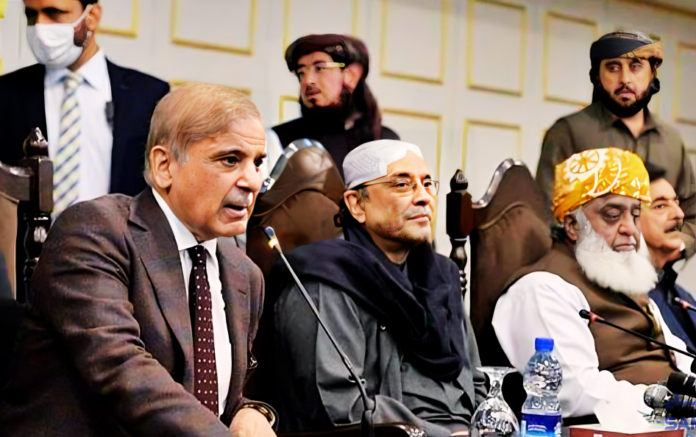Govt JUI-F Resolve Madrassa Bill dispute has been resolved, marking a significant step in addressing longstanding concerns between the government and Jamiat Ulema-e-Islam-Fazl (JUI-F). Senator Kamran Murtaza announced on Wednesday that both sides have reached a consensus on the contentious Madrassa Registration Bill, ensuring all stakeholders are satisfied with the outcome.
How Govt JUI-F Resolve Madrassa Bill Dispute Shaped the Agreement
The Madrassa Registration Bill, which aligns with the 26th Constitutional Amendment, is on track to be formalized with a gazette notification expected within two days. This development was confirmed by Senator Kamran Murtaza during an interview with a local news channel.

Key Highlights of the Agreement:
- The legislation had previously been passed by both houses of Parliament but faced significant debates and objections.
- The Govt JUI-F Resolve Madrassa Bill dispute stemmed from differences over amendments and procedural aspects of the bill.
- Prime Minister Shehbaz Sharif held a crucial meeting with JUI-F chief Maulana Fazlur Rehman, leading to the breakthrough.
- The government accepted the demands of the Ittehad-e-Tanzeemat-e-Madaris, a coalition advocating for substantial changes to the bill.
This resolution marks a critical step toward addressing the concerns of religious institutions while ensuring legislative progress.
Amendments and Registration Process
The primary amendment shifts madrassa registration responsibilities from the Ministry of Education to the Ministry of Industries. This change aims to streamline the process and address concerns raised by various stakeholders. Furthermore, an additional provision will allow madrassas to choose whether to register under the Ministry of Education or the Society Registration Act.
Senator Kamran Murtaza and Law Minister Azam Nazeer Tarar finalized the draft legislation to ensure it aligns with constitutional requirements. Despite these efforts, the bill previously faced hurdles when President Asif Ali Zardari returned it for reconsideration, citing legal and constitutional objections.
Objections Raised by the President
President Asif Ali Zardari raised eight objections to the bill, warning of potential repercussions on both domestic and international fronts. He emphasized concerns about:
- Possible sanctions from the Financial Action Task Force (FATF).
- Risks of increased sectarianism and proliferation of seminaries.
- Threats to law and order due to unchecked madrassa growth.
The president urged lawmakers to address these issues thoroughly to safeguard Pakistan’s international standing and ensure harmony among communities.
Final Steps Toward Resolution
Despite these concerns, Senator Kamran Murtaza expressed confidence that the notification would be issued soon, formally concluding the Govt JUI-F Resolve Madrassa Bill dispute. The agreement underscores the government’s commitment to addressing the needs of religious institutions while maintaining regulatory oversight and compliance with global standards.
In a historic move, the Senate of Pakistan passed the 26th Constitutional Amendment, marking a significant shift in the judicial landscape. The amendment focuses on two key reforms: limiting the Supreme Court’s suo motu powers to ensure stricter use under collective judicial decisions, and revising the appointment process of the Chief Justice of Pakistan (CJP).


